


















Por NELLY HERNANDEZ TEJADA Editora Jefa
Translated by NELLY HERNANDEZ TEJADA Editor-in-Chief
Para nuestros lectores,
En The Signpost, es nuestra responsabilidad reportar las noticias con información factual, clara y en que se puede confiar. Seguimos el Código de Ética de la Sociedad de Periodistas Profesionales (Society of Professional Journalists’ Code of Ethics) para asegurarnos que la información que compartimos es justa, precisa y responsable para cumplir nuestras metas. Es nuestra responsabilidad proporcionar información para todos nuestros audiencias; para nosotros eso incluye servir a nuestra comunidad hispanohablantes.
En 2015, The Signpost comenzó a tradu-
cir las historias en inglés a español. Desde entonces hemos creado nuestro escritorio de traducción, que se encarga precisamente de este trabajo. Con los años ha crecido y aumentado, y ahora podemos tener una Edición de traducción, donde traducimos todas las historias a español y lo publicamos durante la Semana de Traducción de la Universidad de Weber State.
Sabemos que todos no están de acuerdo con las traducciones, pero tenemos la creencia que todos deben tener acceso a la información que no debe ser limitada por el idioma. En esta edición queremos destacar el trabajo de nuestros traductores para empoderarlos—no solamente en nuestra sala de prensa sino en nuestra comunidad. Cada semana ellos dedican su tiempo y esfuerzo a traducir y editar nuestras historias para asegurar que sean precisas, accesibles y respetuosas a las culturas.
Nos sentimos honrados de que esta carta haya sido traducida en español y más idio-

mas, y que podamos demostrar el impacto e importancia de todas las traducciones. Sinceramente, Nelly Hernandez Tejada
By NELLY HERNANDEZ TEJADA Editor-in-Chief
To our readers,
At The Signpost, it’s our responsibility to report on factual, clear and trustworthy news, which can be difficult in this day and age. We follow the Society of Professional Journalists’ Code of Ethics in order to ensure that the information we share is fair, accurate and responsible to accomplish our goals. It is our responsibility to provide information for all of our audiences; for us that includes serving our Spanish-speaking community.
In 2015, The Signpost started translating English stories to Spanish. Since then we have created our Translation Desk, which carries out this very task. Over the years it has grown and expanded, and now we are able to have a Translation Edition, where we translate all of our stories into Spanish and publish it during Weber State University’s Translation Week.
We know not everyone agrees with the translations, but we believe access to information shouldn’t be limited by language. In this edition, we want to highlight our translators’ work to empower them—not just in our newsroom but in our community. Every week they put in the time and effort translating and editing our stories to ensure that they are accurate, accessible and culturally respectful.
We are honored to have this letter be translated in Spanish and more languages, and able to show the impact and importance of all translations.
The Signpost is proud to be one of the only neThe Signpost is proud to be one of the only newspapers in the state of Utah to consistently translate our stories into Spanish, and we are even prouder to say with confidence that our Translation Desk is here to stay.
Sincerely,
Nelly Hernandez Tejada

Traduzido por IZABELLE CORDEIRO
Editor Gráfico
Translated by IZABELLE CORDEIRO
Graphics Editor
Para nossos leitores,
No The Signpost, é nossa responsabilidade reportar notícias factuais, claras e confiáveis, o que pode ser desafiador nos tempos atuais. Seguimos o Código de Ética da Sociedade de Jornalistas Profissionais para garantir que as informações que partilhamos sejam justas, corretas e responsáveis, a fim de alcançar nossos objetivos. É de nossa responsabilidade fornecer informações a todos os nossos públicos; para nós, isso inclui servir a nossa comunidade de língua espanhola.
Em 2015, o The Signpost começou a traduzir histórias do inglês para o espanhol. Desde então, criamos o nosso próprio departamento de tradução, responsável por essa tarefa.
Ao longo dos anos, ele cresceu e se expandiu, e agora tornou-se possível lançar uma Edição de Tradução, na qual traduzimos todas as nossas histórias para o espanhol e as publicamos durante a Semana da Tradução da Weber State University.
Sabemos que nem todos concordam com as traduções, mas acreditamos que o acesso à informação não deve ser limitado pela língua. Nesta edição, queremos destacar o trabalho dos nossos tradutores e valorizá-los, não apenas na nossa redação, mas também em nossa comunidade.Semanalmente, eles dedicam tempo e esforço à tradução e edição de nossas histórias para garantir que sejam precisas, acessíveis e culturalmente respeitosas.
Estamos honrados por ter esta carta traduzida para o espanhol e muitas outras línguas, e por poder mostrar o impacto e importância de todas as traduções.
O The Signpost orgulha-se de ser um dos poucos jornais no estado de Utah que consistentemente traduz suas histórias para o es-

panhol, e temos ainda mais orgulho em afirmar com confiança que nosso departamento de tradução está aqui para ficar.
Sinceramente, Nelly Hernandez Tejada
Le sous-direction de la
et correctur stylistique
Translated by TOMAS QUINTERO URIBE
Translation & Asst. Chief Copy Editor
À nos lecteurs,Par
Chez The Signpost, nous avons la responsabilité de rapporter des informations factuelles, claires et fiables, ce qui peut s’avérer difficile à l’heure actuelle. Nous suivons le code de déontologie de la Society of Professional Journalists afin de garantir que les informations que nous partageons sont justes, précises et responsables, conformément à nos objectifs. Il est de notre responsabilité de fournir des informations à tous nos publics, ce qui inclut pour nous la communauté hispanophone.
En 2015, The Signpost a commencé à traduire des articles anglais en espagnol. Depuis, nous avons créé notre service de tra-
duction, qui se charge précisément de cette tâche. Au fil des ans, celui-ci s’est développé et élargi, et nous sommes désormais en mesure de proposer une édition traduite, dans laquelle nous traduisons tous nos articles en espagnol et les publions pendant la semaine de la traduction de l’université Weber State.
Nous savons que tout le monde n’est pas d’accord avec les traductions, mais nous pensons que l’accès à l’information ne doit pas être limité par la langue. Dans cette édition, nous voulons mettre en avant le travail de nos traducteurs afin de les valoriser, non seulement dans notre salle de rédaction, mais aussi dans notre communauté. Chaque semaine, ils consacrent du temps et des efforts à la traduction et à la révision de nos articles afin de garantir leur exactitude, leur accessibilité et leur respect culturel.
Nous sommes honorés que cette lettre soit traduite en espagnol et dans d’autres langues, et que nous puissions montrer l’impact et l’importance de toutes les traductions.

The Signpost est fier d’être l’un des seuls journaux de l’État de l’Utah à traduire régulièrement ses articles en espagnol et nous sommes encore plus fiers d’af-
firmer avec confiance que notre service de traduction est là pour rester. Honnêtement, Nelly Hernandez Tejada
Tradotto Da LUNA CARTER Collaboratore
Translated By LUNA CARTER Collaborator
Ai nostril lettori,
In The Signpost è nostra responsabilità riferire su fatti chiare, affidabili e, soptattutto possono essere difficili al giorno d’oggi. Seguiamo il Codice Etico della Society of Professional Journalists al fine di garantire che le informazioni che condividiamo siano corrette, accurate e responsabili per raggiungere i nostri obiettivi. È nostra responsabilità fornire informazioni a tutto il nostro pubblico; per noi questo include servire la nostra comunità di lingua Italiana.
Nel 2015, The Signpost ha iniziato a tradurre storie da articole, dall’inglese allo Spagnolo.
Da allora abbiamo creato il nostro ufficio di traduzione, che svolge proprio questo compito. Nel corso degli anni è cresciuta e si è ampliata, e ora siamo in grado di avere un’edizione di traduzione, in cui traduciamo tutte le nostre storie in Italiano e le pubblichiamo durante la Settimana della traduzione della Weber State University. Sappiamo che non tutti sono d’accordo con le traduzioni, ma crediamo che l’accesso alle informazioni non debba essere limitato dalla lingua. In questo numero, vogliamo mettere in evidenza il lavoro dei nostri traduttori per responsabilizzarli, non solo nella nostra redazione, ma nella nostra comunità.
Ogni settimana dedicano tempo e sforzi alla traduzione e all’editing delle nostre storie per garantire che siano accurate, accessibili e culturalmente rispettose.
The Signpost” è orgoglioso di essere uno dei pochi giornali nello stato dello Utah a tradurre costantemente le nostre storie in

Italiano, e siamo ancora più orgogliosi di dire con sicurezza che il nostro ufficio di traduzione è qui per restare.
Translated By AAVASH GHISING
Graphic Designer
Sinceramente, Nelly Hernandez Tejada

INTERN WITH THE
U.S. Senate, U.S. House of Representatives, state legislative offices, non-profit groups and other organizations
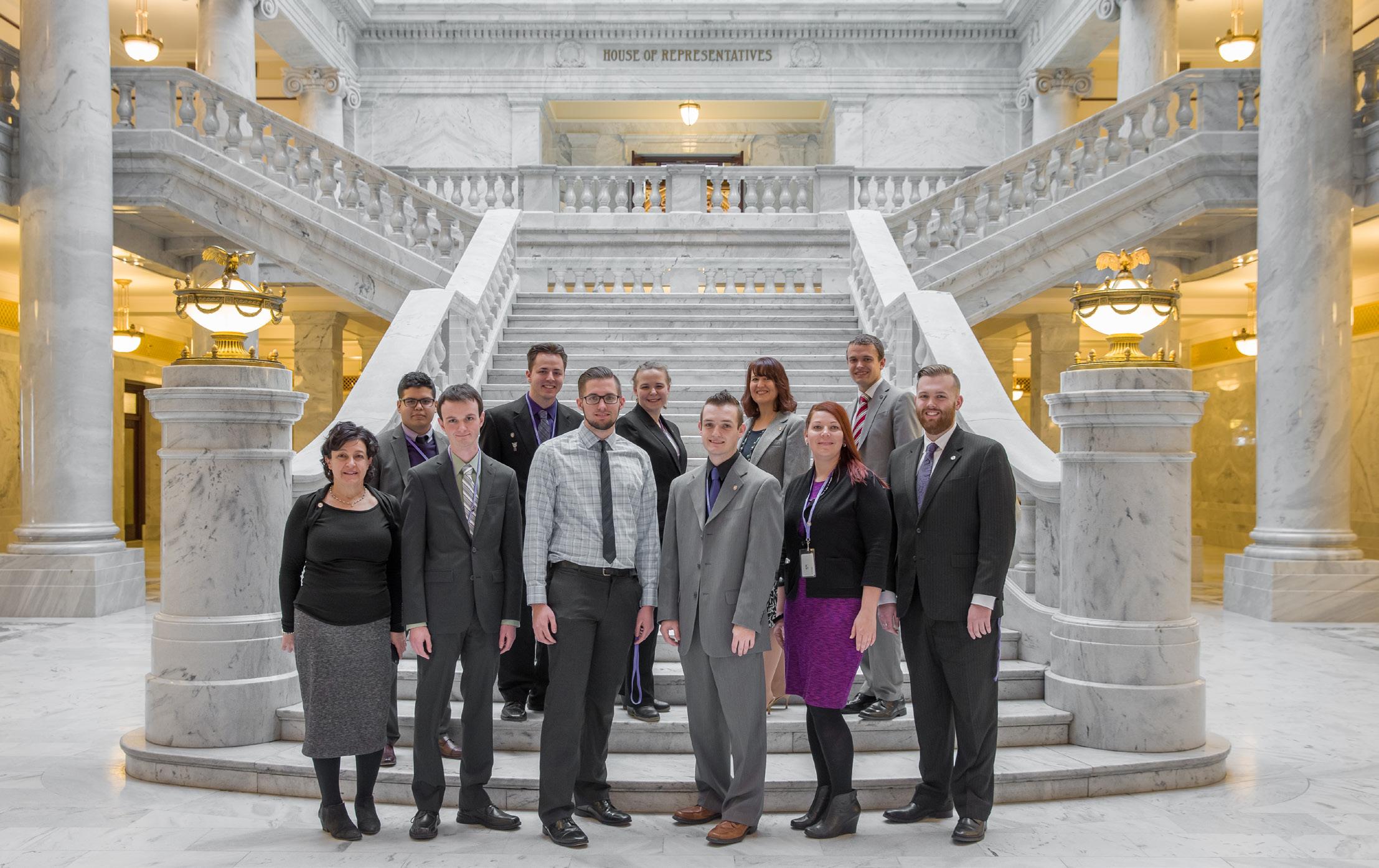






Por VICTORIA HERNANDEZ
Co-Editor de Traduccion
Hola! Soy Victoria Hernandez, actualmente estoy en mi segundo año en la Universidad de Weber State y es mi primer año como co-editora de la mesa de traducción junto David Aros. Estoy estudiando educación primaria y me gustaría enseñar entre 3er y 5to grado! Yo pienso que la traducción no solo de historias le dan la oportunidad a mi comunidad latina a estar informada de lo que está pasando en la universidad como también fuera de ella. Me encanta tener esta oportunidad de poder trabajar en el Signpost, ya que ha no solo tenido un impacto en mí, sino también en mi familia al poder leer las historias en su idioma natal.

Por DAVID ROMAN AROS
Co-Editor de Traduccion
Tal como Victoria, yo también acabo de empezar mi segundo año aquí en Weber. Voy estudiando administración de salud. Me emociona ser co-editor de la mesa de traducciones en el Signpost por varios motivos. Sin embargo, diría que lo más importante es poder proveer una fuente confiable de información para la major cantidad de personas posible. Entiendo cómo es estar en otro país sin tener una comprensión adecuada del idioma ni saber a dónde acudir para información relevante. Queremos dar esto a la comunidad.

By VICTORIA HERNANDEZ Translation Co-Editor
Hey, I’m Victoria Hernandez, I’m currently in my second year at Weber State University and this is my first year as a Translation Desk co-editor alongside David Aros. I’m studying elementary education and would like to teach third and fifth grade. I think translating stories gives my latin community the opportunity to be informed of what is going on in and out of college. I’m thrilled to have the opportunity to work on The Signpost, as it has not only had an impact on me, but also on my family to be able to read the stories in their native language.
By DAVID ROMAN AROS Translation Co-Editor
Like Victoria, I have also just started my second year here at Weber. I’m studying health administration. I’m excited to be co-editor of the Translation Desk at the signpost for several reasons. However, I would say that the most important thing is to be able to provide a reliable source of information for as many people as possible. I understand what it’s like to be in another country without understanding the language or knowing where to go for relevant information. We want to give this to the community.
Por TOMAS QUINTERO URIBE
Un gusto, me llamo Tomás, este es mi segundo año en Weber y estudió negocios. Dentro del Signpost, trabajó como editor de traducciones y asistente de jefe adjunto; siento que el Desk de traducciones es uno de los roles más importantes dentro de nuestro periódico, ya que sabemos la cantidad de hispano hablantes dentro de nuestra querida universidad, me encanta trabajar en un lugar en donde se que puedo incluir nuestro lenguaje y cultura dentro de las noticias.

Por LUNA MALAGON SOLORZANO Traductor
¡Hola! Mi nombre es Luna Malagon, y este también es mi segundo año en Weber State, y mi primer semestre siendo traductora para el Signpost. Estoy estudiando traducción al español con un minor en relaciones internacionales, me gusta mucho ser traductora para el Signpost por que no solo es lo que estoy estudiando, si no tambien siento que estoy ayudando a mi comunidad y a que más personas se sientan más informados de las cosas que están pasando no solo en la universidad, si no en el mundo.

Por IVANNA OLACHEA GONZALEZ Traductor
Hola, me llamo Ivanna, este es mi segundo año en Weber State y el primer semestre formando parte del Signpost siendo traductora. Estoy estudiando ingeniería. Me gusta traducir porque sé lo que se siente no hablar un idioma pero querer entenderlo y es por eso que disfruto ayudar a otros a comprender las historias y noticias del Signpost por mis tradiciones. Un sentimiento reconfortante llega a mi corazón cada vez recuerdo que las traducciones que hacemos ayudan a la gente a comprender y entender en su totalidad los sucesos que pasan dentro y fuera del campus.

By
My name is Tomás, this is my second year at Weber, and I am studying business. At the Signpost, I work as a translation copy editor and assistant chief copy editor. I feel that the Translation Desk is one of the most important roles within our newspaper, given the number of Spanish speakers at our beloved university. I love working in a place where I know I can include our language and culture in the news.
By LUNA MALAGON SOLORZANO Translator
Hi, my name is Luna Malagon, and this is my second year at Weber State, and my semester as a translator for The Signpost. I’m majoring in spanish translation with a minor in international relations, I really like being a translator for The Signpost because not only is it what I’m studying, but I also feel like I’m helping my community and that more people feel informed of the things that are happening not just around campus, but around the world.
By IVANNA OLACHEA GONZALEZ Translator
Hello, my name is Ivanna. This is my second year at Weber State and my first semester as a translator for The Signpost. I am studying engineering. I enjoy translating because I know what it feels like to not speak a language but to want to understand it; which is why I enjoy helping others understand the stories and news in The Signpost through my translations. A comforting feeling comes to my heart every time I remember that the translations we do help people comprehend and understand fully the events happening on and off campus.
Por VICTORIA HERNANDEZ Traductor
POR
SKYLAR WOLFE Reportero
La Semana de Traducción es una oportunidad para crear conciencia entre estudiantes sobre qué es traducir y qué hacen los traductores.
Isabel Asencio, Ph.D., profesora de traducción e interpretación de Español en la Universidad de Weber State y organizadora de la Semana de Traducción, dijo: “las personas no se dan cuenta de lo importantes que son los traductores en la vida cotidiana hasta que conoce o aprende un poco más sobre ello”.
La Semana de Traducción resalta aspectos de la vida cotidiana que involucran traductores y que la mayoría de las personas no piensan dos veces.
“Diría que el 99% de los estudiantes…
han dicho que han aprendido algo nuevo que no sabían y que les sorprende el rol de traductores e intérpretes, but todo es tan callado. Nadie piensa sobre ellos”, dijo Asencio
Traducción e interpretación suelen utilizarse indistintamente, tal y como afirma
Asencio: “Un traductor realiza un trabajo muy diferente al de un intérprete, y las habilidades que necesitan son muy distintas”.
Asencio dijo que la Semana de Traducción es una forma de aprender la diferencia entre las dos y entender de verdad sobre lo que hacen los traductores.
Asencio describe una parte fundamental del trabajo de un traductor utilizando como ejemplo “Squid Games”.
“Es una producción coreana. Por lo tanto, si quieres verla y no sabes coreano, necesitas doblaje o subtítulos. De lo contrario, no vas a entender lo que dicen”, explica Asensio. “Pero la gente no piensa en ello. Simplemente dan
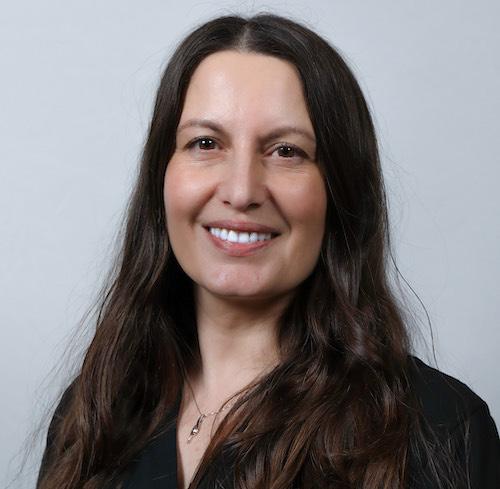
por hecho que viene incluido. Sin embargo, hay todo un equipo detrás”.
Según Asencio, sin la traducción, nadie podría comprender otras culturas. Relaciona esto con la famosa serie de novelas “Harry Potter”: “Si no fuera por los traductores, el público joven de tantos países no habría tenido acceso a ese texto”, afirmó Asencio.
Electra Gamón Fielding, doctora y directora del departamento de lenguas y culturas del mundo de Weber, dijo: “La traducción es un puente entre culturas. Es un cliché, pero creo que funciona muy bien”.
Fielding afirmó que para ser traductor es necesario tener un profundo conocimiento de la cultura de ambos idiomas.
“Es necesario tener esa competencia cultural… comprender realmente la cultura para poder producir algo que sea equivalente en la cultura de destino”, afirmó Fielding.
La Semana de Traducción está dirigida a to-
das las personas que deseen participar. No es necesario que los estudiantes estén cursando una carrera de idiomas o traducción para participar en estos eventos.
“Me encanta escuchar a la gente hablar en otros idiomas. No entiendo lo que dicen pero se puede apreciar el ritmo y la musicalidad de las palabras”, dijo Asencio.
Habrán diversas actividades durante la Semana de Traduccion, como “Aquella vez que reencarne como traductora: dentro del mundo de la traduccion de manga”, el 30 de septiembre a las 9 a.m. Alyssa Weldon, traductora de manda, visitara el campus y explicara su proceso de traduccion de manga japones a otros idiomas.
“Ven a nuestros eventos… Aunque solo hables una pocas palabras de un idioma… ven a conocer la profesión… Nos encantaría contar contigo”, dijo Feilding.

By SKYLAR WOLFE Reporter
Translation Week is an opportunity to raise awareness among students about what translation is and what translators do.
Isabel Asensio, Ph.D., professor of Spanish translation and interpretation at Weber State University and organizer of Translation Week, said, “People don’t realize how important translators are in everyday life until they know or learn a little bit more about it.”
Translation Week highlights ways in everyday life that involve translators that most people do not think twice about.
“I would say that 99% of the students… say that they learned something new that they didn’t know and they’re amazed by how important the role of translators and interpreters is, but it’s all so silent. No one thinks of those,” Asensio said.
Translation and interpretation are often used interchangeably, as said by Asensio, “A translator does a very different job from an interpreter, and the skills they need are very different.”
Asensio said that Translation Week is a way to learn the difference between the two and truly understand what translators do.
Asensio describes a key part of a translator’s job using “Squid Games” as an example.
“That’s a Korean production. So if you want to watch it and you don’t know any Korean, you need dubbing or subtitles. Otherwise, you’re not going to know what they’re saying,” Asensio said. “But people don’t think about it. They just assume it comes with it. But there is a whole team behind the scenes.”
According to Asensio, without translation, no one would be able to understand other
cultures. She related this to the famous novel series “Harry Potter,” “If it wasn’t for translators, the young audience of so many countries wouldn’t have been exposed to that text,” Asensio said.
Electra Gamón Fielding, Ph.D., chair of the department of world languages and cultures at Weber, said, “Translation is a bridge between cultures. It’s cliché to say that, but I think it works really well.”
Fielding said that to be a translator, one needs to have a deep understanding of the culture of both languages involved.
“You need to have that cultural competence … to really understand the culture in order to be able to produce something that is equivalent in the target culture,” Fielding said.
Translation Week is for everyone looking to get involved. Students do not need to be
pursuing a degree in language or translation to participate in these events.
“I love listening to people speak in other languages. I don’t understand what they’re saying, but you can hear the rhythm and the music of the words,” said Asensio
There are going to be various activities during Translation Week, such as, “That Time I Got Reincarnated as a Translator: Inside the World of Manga Translation,” on Sept. 30 at 9 a.m. Alyssa Weldon, a manga translator, will be visiting the campus and explaining her process of translating Japanese manga into other languages.
“Come to our events … Even if you only speak a few words in a language… come learn about the profession…We’d love to have you,” Feilding said.
MONDAY, SEPT. 29
Bilingual Readings and Faculty Panel
11:30 a.m to 12:20 p.m Shepherd Union | Room 321
TUESDAY, SEPT. 30
Inside the World of Manga Translation
9 a.m to 10:15 a.m.
Virtual: Zoom registration
WEDNESDAY, OCT. 1
Language Career Pathways Fair
10:30 to 11:00 a.m - Employers' Panel | SU 321
11:00 a.m to 12:00 p.m | SU Mezzanine
THURSDAY, OCT. 2
Write Your Own Fine Print
9:00 to 10:15 a.m.
Stewart Library | Hetzel-Hoellein Room
FRIDAY, OCT. 3
World Languages and pizza
10:30 to 12:30 p.m.
Elizabeth Hall | Student Lounge
September 29 - October 3
Por DAVID ROMAN AROS Traductor
Por JARED MITCHELL Editor
Del 25 al 27 de septiembre, FanX celebró su convención anual en el Salt Palace Convention Center de Salt Lake City. La convención se centra en muchos aspectos diferentes de la cultura pop, con puestos que ofrecen productos, mesas redondas, concursos de cosplay y encuentros con famosos.
“Solía tener una cuenta de cosplay y allí conocí a algunos amigos que aún conservo», dijo Cairo Evans, asistente a FanX. “Creo que es genial porque mucha gente utiliza el cosplay para expresarse y, cuando encuentras a personas que se expresan de forma similar a ti, es un punto de conexión realmente interesante”.
Evans ha podido entablar y mantener amistades gracias a la cultura del fandom y afirma que su experiencia con ella ha sido positiva.
Evans dijo, “Creo que los espacios de fandoms son un lugar realmente hermoso para unir a la comunidad y nunca he sentido una comunidad como la que he sentido en un espacio de fandom”.
“Cuando se reúne a un grupo de personas por cualquier motivo y supera un determinado tamaño, siempre hay puntos oscuros en
ese grupo en los que no es seguro o agradable estar, pero, sinceramente, solo son una minoría ruidosa”, afirma Thompson. “Hay tantas cosas buenas en los espacios de los fans que pueden ayudar a las personas a sentirse queridas y aceptadas tal y como son, en lugar de avergonzarse por simplemente disfrutar de algo que les gusta”.
Maddie Simmons, asistente desde hace varios años a FanX, dijo que todas las personas con las que ha interactuado han sido amables y le han proporcionado un lugar seguro para expresarse.
“Creo que es genial tener un lugar donde todos podamos compartir este mismo interés sin que nos juzguen desde fuera y donde podamos ser nosotros mismos”, dijo Simmons. “Creo que es un lugar genial para expresarse libremente”.
Thompson dijo que le ha gustado asistir a FanX con un grupo debido a la experiencia de unión que ofrece el evento. También ha tenido interacciones positivas con desconocidos que se disfrazan de personajes de un fandom similar.
“Es muy divertido conocer a alguien al principio de la convención porque ambos están haciendo cosplay de la misma serie y entablan conversación, y luego lo ves cuatro horas más tarde en otro lugar y piensas: “Vaya, te recuerdo. Ahora somos amigos”, dijo Thompson.

Convenciones como FanX y la comunidad que las rodea pueden ayudar a las personas a fomentar relaciones duraderas, como en el caso de Robin y Juno Morningstar, una pareja casada que se conoció a través del fandom.
“Empezamos a hablar y a conectar en convenciones y entonces pensamos: «Oye, ¿por qué no salimos juntos?””, dijo Juno Morningstar.
Robin Morningstar dijo que las convenciones y el cosplay le han ayudado a estrechar lazos con su esposa.
“Hemos podido ir y experimentar cosas nuevas en convenciones en diferentes estados que nunca habíamos hecho antes. Podemos hacerlo juntos, lo que nos ayuda a estrechar lazos y aprender nuevos trucos de cosplay que nos enseñamos unos a otros, además de compartir nuestra afición y ver series juntos”, afirma Robin Morningstar. “La afición y el cosplay nos unieron, y creo que
esa es la razón por la que estamos juntos”. La pareja comenzó a salir al inicio de la pandemia del coronavirus, y la cuarentena les brindó la oportunidad de compartir sus programas favoritos con su nueva pareja. Robin Morningstar dijo que ver cómo ambos se emocionaron con sus cosas favoritas les ayudó a unirse como pareja.
Juno Morningstar dijo que la expresión personal era otra cosa que les ayudó a crecer juntos como pareja a través del cosplay de «parejas» románticas, una relación creada por los fans entre personajes no románticos de una obra de la cultura pop. Dijo que el fandom les había ayudado a ser ellos mismos el uno con el otro.
“Creo que, especialmente en el mundo del fandom, hay que ser auténtico. No hagas cosas por los demás. Hazlo por ti mismo y sé feliz”, dijo Juno Morningstar.

By JARED MITCHELL Editor
From Sept. 25 to Sept. 27 FanX held its annual convention in Salt Lake City’s Salt Palace Convention Center. The convention focuses on many different pieces of pop culture with booths featuring merchandise, discussion panels, cosplay contests and celebrity meet ups.
With such a wide range of interests on display at the convention, many attendees can find other fans of similar pieces of pop culture that they didn’t know before.
“I used to run a cosplay account and I met some friends I still have today from it,” said FanX attendee Cairo Evans. “I think it’s really cool because a lot of people use cosplay to express themselves and then when you find people who express themselves similarly to you, that’s a really cool point for a connec-
tion.”
Evans has been able to build and maintain friendships through fandom culture and she said that her experience with fandom culture has been a positive one.
“I think that fandoms spaces are a really beautiful place to bring community together and I’ve never felt community like I have in a fandom space,” Evans said.
Brady Thompson, a first time FanX attendee, said that while there can be some bad people within a fandom community, they’re the minority.
“When you get a group of people together in any capacity above a certain size, there’s always going to be dark spots of that group where it’s just not a safe or good place to be, but they’re honestly just a vocal minority,” Thompson said. “There’s so much good within fandom spaces as well that can help people feel loved, accepted for who they
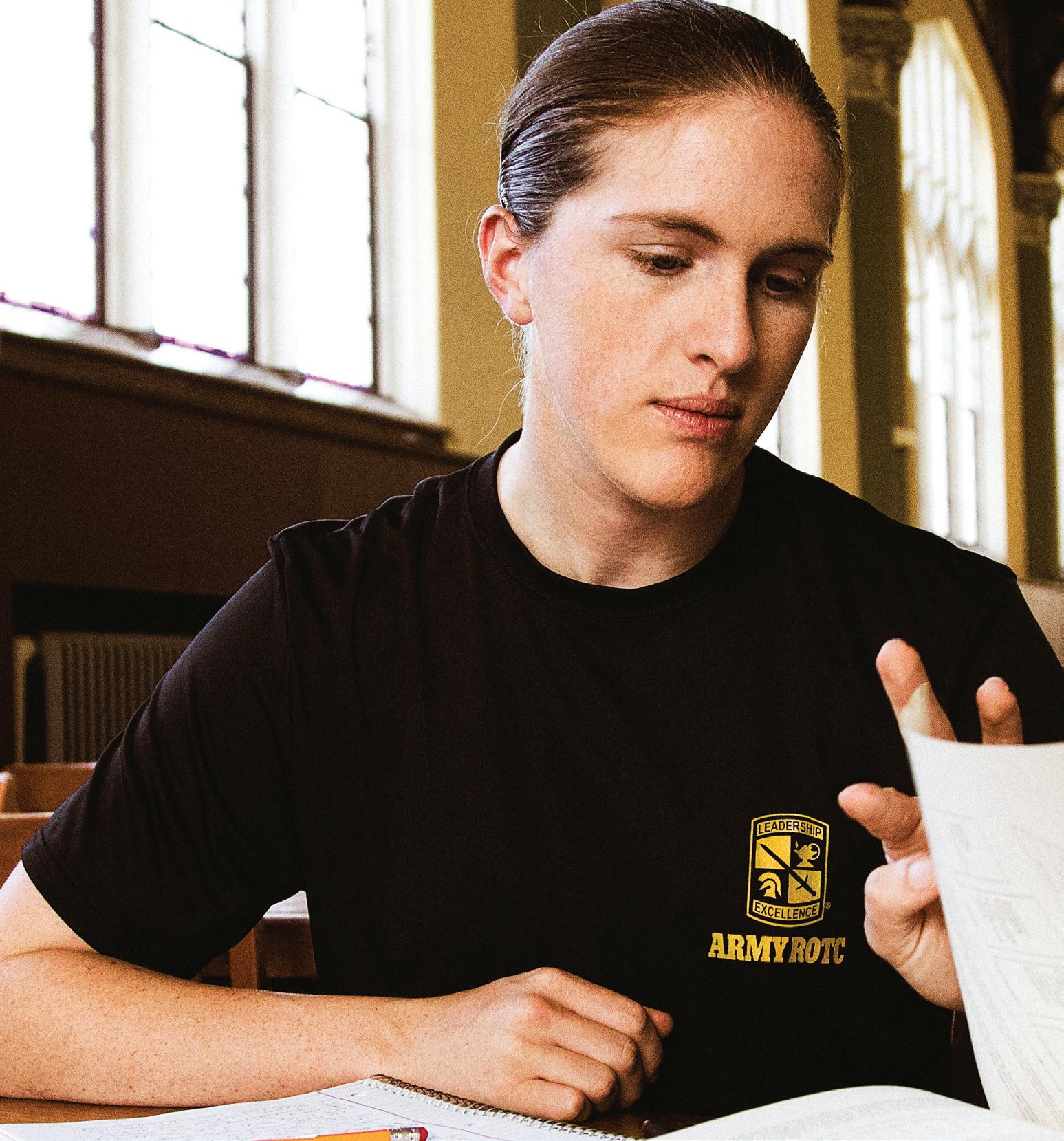
are instead of being ashamed for just liking something that’s fun.”
Maddie Simmons, a multi year attendee at FanX, said that everyone she’s interacted with has been kind and provided a safe place for her to express herself.
“I think it’s nice to have a place where you can all share this one same interest without being shamed from any outside sources and really just be able to geek out,” Simmons said. “I think it’s a great place to really just express oneself.”
Thompson said that he’s enjoyed attending FanX with a group due to the bonding experience the event provides. He also has had positive interactions with strangers who were cosplaying characters from a similar fandom.
“It’s super fun meeting somebody near the beginning of the con because you’re cosplaying from the same show and you have a conversation, and then you see them four hours later at a different place, and you’re like, Oh, my gosh, I remember you. We’re friends now,” Thompson said.
Conventions like FanX and the community within can help people foster long-term relationships, like with Robin and Juno Morningstar, a married couple who met through fandom.
“We just started talking and connecting through conventions and then we just were like, ‘Hey, why don’t we actually date,’” Juno
Morningstar said.
Robin Morningstar said that conventions and cosplay have helped her grow closer to her wife.
“We’ve been able to go and experience new things at conventions across different states that we hadn’t before. We get to do that together to help us bond and learn new cosplay tips to show each other and bond over fandoms and binge watch things together,” Robin Morningstar said. “Fandom and cosplay brought us together, and that’s our whole reason for being together, I think.”
The pair started dating at the start of the coronavirus pandemic, quarantining provided them an opportunity to share their favorite shows with their new partner. Robin Moringstar said that seeing each other get excited about their favorite things helped them bond together as a couple.
Juno Morningstar said that self expression was another thing that helped them grow together as a couple through cosplaying as romantic “ships,” a fan-made relationship between non-romantic characters in a piece of pop culture. She said that fandom has helped them be themselves around each other.
“I think, especially with fandom, live authentically yourself. Do not do things for others. Do it for yourself and be happy,” Juno Morningstar said.

Por VICTORIA HERNANDEZ Traductor
Por GAVIN NELSON Editor
El equipo de Football de la Universidad de Weber State perdió a la Universidad de California, Davis, Aggies a 34-12, en el primer partido de la temporada de Big Sky Conference de ambos equipos.
Weber recibió el balón primero, pero fue un “three-and-out”. El intento de despeje del pateador Henry Way golpeó el lateral de su pie y salió fuera del área, culminando en solo 11 yardas. Sin embargo, la defensa de los Wildcats se recuperó y forzó un “three-andout”. En el siguiente punt, el freshman wide receiver Robert Young, que sustituyó al punt returner lesionado Bird Butler, consiguió una recepción válida del balón en la yarda 3, en lugar de dejar que el balón entrara en el endzone para un touchback, lo que dejó a los WIldcats en una mala posición de campo.
Los Wildcats avanzaron hasta su propia yarda 46 antes de ser detenidos en la tercera y dos, lo que les obligó a realizar otro punt.
En la siguiente jugada de los Aggies, el running back Carter Vargas pierde el balón,
que fue recuperado por el senior safety de Weber State, Angel King, devolviendo así la posesión a los Wildcats.
Después de que los equipos intercambiarán punts para terminar el cuarto, weber avanzó por el campo hasta la yarda 16 de UC Davis antes de ser detenido en la tercera oportunidad. El senior pateador Sloan Calder pateó entonces un gol de campo de 33 yardas para dar a los Wildcats una ventaja 3-0.
En la siguiente jugada, los Wildcats forzaron otros “three-and-out”, pero el freshman tackle Zion Finau fue penalizado por conducta antideportiva, lo que le dio a los Aggies un primer down. Aprovecharon la oportunidad, avanzaron por el campo y anotaron el touchdown del partido.
En la siguiente jugada de Weber, los wildcats lo intentaron en el cuarto down, pero el pase fue incompleto.
En la siguiente jugada, los Aggies se dieron cuenta del blitz de Weber State y cambiaron su formación, enviando tres receptores abiertos al lado izquierdo y uno al derecho. Nadie cubría a Aggie Vargas en la posición del receptor, por loe que el linebacker de Weber, Mayson Hitchens, abandonó su posición habitual para cubrirlo. Vargas superó a Hitchens en velocidad y el quarterback de UC
Davis, Caden Pinnick, lo encontró completamente solo para un pase de touchdown de 57 yardas.
En la patada de salida posterior, el safety de Weber State, Trevian Tribble, devolvió el balón 46 yardas antes de ser golpeado fuera del campo por el pateador de UC Davis, lo que colocó a los Wildcats en una excelente posición de campo en la yarda 33 de los Aggies.
Los Wildcats avanzaron hasta la yarda 4 de los Aggies, pero la jugada se estancó después de que el quarterback Jackson Gilkey fuera derribado. Calder salió para patear un gol de campo de 27 yardas, pero falló.
Para terminar la primera parte, los Aggies avanzaron por el campo, culminando con un gol de campo de 45 yardas que dejó el marcador en 17-3 al descanso.
En el tercer cuarto, los equipos intercambiaron punts y luego porterías, con un marcador de 20-6 al entrar en el último cuarto.
En el cuarto, UC Davis anotó otro touchdown para poner el 27-6.
Después de que Weber fallara un intento de cuarta oportunidad en la zona roja, UC Davis volvió a anotar en la primera jugada de su avance.
Weber recuperó el balón y avanzaba por el campo hacia la yarda 42 de los Aggies cuando Gilkey corrió con el balón en tercera oportunidad y se deslizó para evitar el placaje; sin embargo, su taco se enganchó en el césped y su tobillo se torció hacia un lado. Un defensa de la UC Davis vio la lesión y llamó al equipo médico.
Afortunadamente, Gilkey pudo salir del campo con una ayuda mínima; aún se desconoce el diagnóstico.
Con el quarterback suplente Cash McCollum fuera por una lesión en la mano, el quarterback de tercera línea Dijon Jennings sustituyó a Gilkey. Jennings encontró entonces al receptor junior Marcus Chretien, que realizó una acrobática recepción para anotar el único touchdown de Weber de la noche. Los Aggies dejaron correr el reloj, lo que les dio la victoria por 34-12.
Los Wildcats entran en su semana de descanso para recuperarse antes de volver a casa para jugar contra la Universidad Estatal de California, Sacramento, en el partido de bienvenida el 11 de octubre a las 6 p. m.
Corredor de Weber State University Jackson Gilkey (#2), se prepara para hacer un pase bajo el campo.
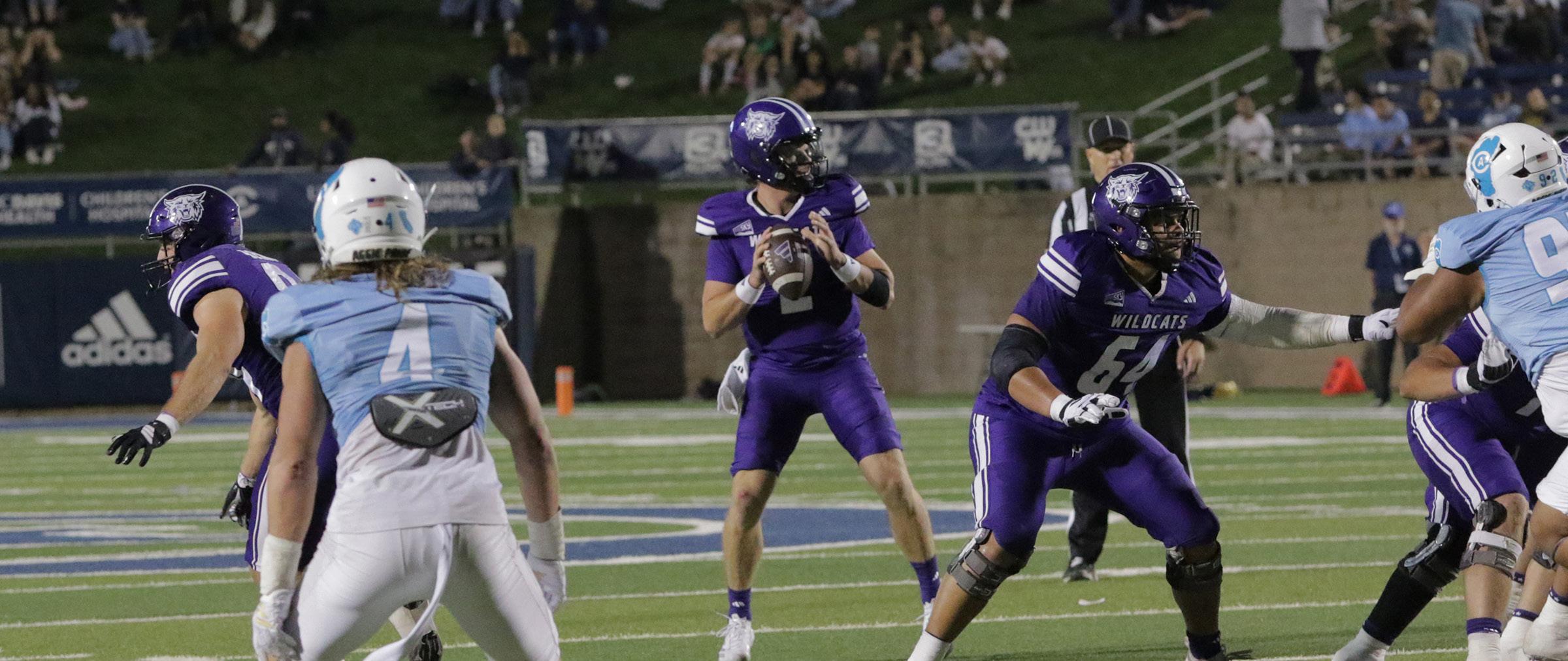
By GAVIN NELSON Editor
The Weber State University football team lost to the University of California, Davis, Aggies 34–12, in both teams’ first Big Sky Conference game of the season.
Weber received the ball first, but went three-and-out. Punter Henry Way’s punt attempt hit the side of his foot and sailed out of bounds, only culminating in 11 yards. The Wildcat defense recovered, however, forcing a three-and-out of their own. On the ensuing punt, freshman wide receiver Robert Young, who stepped in for injured punt returner Bird Butler, got a fair-catch of the ball on the threeyard line, rather than letting the ball go into the endzone for a touchback, giving the Wildcats poor field position.
The Wildcats drove down to their own 46yard line before being stopped on third and two, forcing another punt.
On the Aggies’ next drive, running back Carter Vargas fumbled the ball, which Weber State senior safety Angel King recovered to give the Wildcats the ball back.
After the teams exchanged punts to end the quarter, Weber drove down the field to the UC Davis 16-yard line before being stopped on third down. Senior kicker Sloan Calder then kicked a 33-yard field goal to give the Wildcats a 3–0 lead.
On the following drive, the Wildcats forced another three-and-out, but freshman defensive tackle Zion Finau was penalized for unsportsmanlike conduct, giving the Aggies a first down. They took advantage, drove down the field, and scored the game’s first touchdown.
On Weber’s next drive, the Wildcats went for it on fourth down, but the pass fell incomplete.
On the next drive, the Aggies noticed the Weber State blitz and changed their formation, sending three wide receivers to the left side and one to the right. No one was covering Aggie Vargas in the receiver position, so Weber linebacker Mayson Hitchens left his usual spot to cover him. Vargas then outran Hitchens, and UC Davis quarterback Caden Pinnick found him wide open for a 57-yard touchdown pass.
On the ensuing kickoff, Weber State safety Trevian Tribble returned the ball 46 yards before being hit out of bounds by the UC Davis
kicker, which put the Wildcats in excellent field position on the Aggie 33-yard line.
The Wildcats drove to the Aggie four-yard line, but the drive stalled out after quarterback Jackson Gilkey was sacked. Calder was brought out to kick a 27-yard field goal, but missed it.
To end the half, the Aggies drove down the field, culminating in a 45-yard field goal to make it 17–3 at the half.
In the third quarter, the teams traded punts, then field goals, with the score being 20–6 entering the final quarter.
In the fourth, UC Davis scored another touchdown to make it 27–6.
After Weber failed a fourth-down attempt in the red zone, UC Davis scored again on their drive’s first play.
Weber got the ball back and was driving down the field to the Aggie 42-yard line when Gilkey ran the ball on third down and slid to avoid the tackle; however, his cleat was caught on the turf, and his ankle was turned sideways. A UC Davis defender saw the injury and called for the medical team.
Luckily, Gilkey was able to come off the field with minimal help; the diagnosis is not yet known.
With backup quarterback Cash McCollum out with a hand injury, third-string quarterback Dijon Jennings relieved Gilkey. Jennings then found junior wide receiver Marcus Chretien, who made an acrobatic catch to score Weber’s only touchdown of the night.
The Aggies then ran the clock out, giving them the 34–12 win.
The Wildcats enter their bye week to heal before returning home to play California State University, Sacramento, for the homecoming game on Oct. 11 at 6 p.m.

Share this story at thesignpostwsu.com
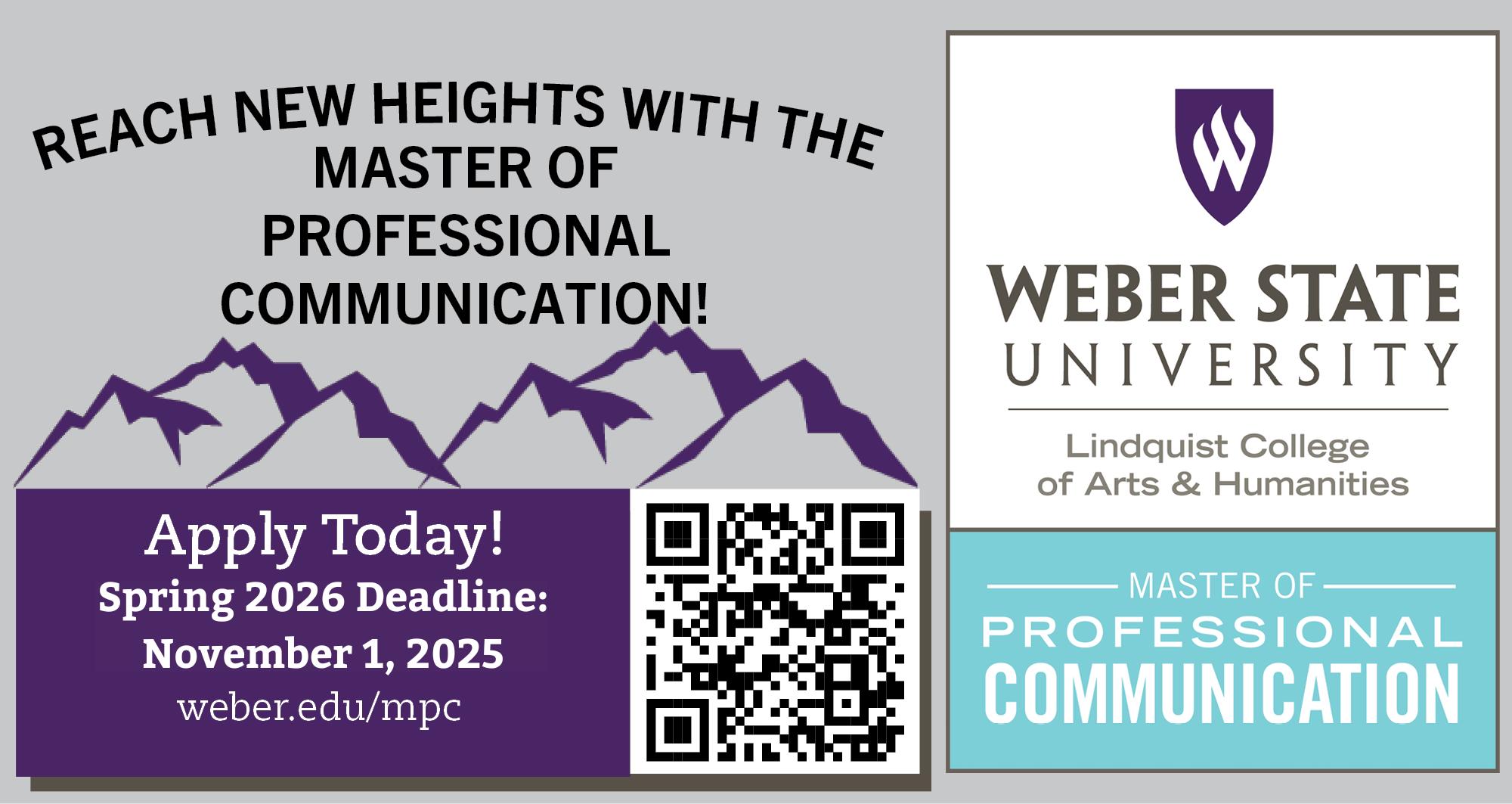
Por LUNA MALAGON SOLORZANO Traductor
Por WILL NAUGHTON Reportero
El club de fútbol de la Universidad de Weber State permaneció invicto y dio un espectáculo en casa, derrotando a la universidad de utah 4-1 el 24 de septiembre, con muchas leyendas del club mirando en lo que fue la noche de los antiguos alumnos del club.
El miércoles fue una noche de celebración, familia, amigos y comida gratis en el Complejo deportivo comunitario Spence Eccles Ogden , Weber reconoció a antiguos jugadores y entrenadores por su influencia y contribución al éxito histórico del programa, al tiempo que se asoció con Gear up for good para donar equipamiento deportivo a nivel internacional. Los aggies no pudieron arruinar la fiesta de los Wildcats, y los aficionados locales se marcharon con motivos para sonreír.
Tim Crompton el director deportivo de weber state, están orgullosos de ver los frutos de su labor floreciendo todos estos años después.
“Me dio un propósito para retribuir” dijo Crompton. “Creamos mucho orgullo por la propia institución , y sin duda siento que esto se a quedado conmigo”.
En la primera mitad sin ninguna anotación, el tono del partido se asentó por las entradas y las respuestas hostiles de ambos equipos . Los wildcats pensaron que habían abierto el marcador cuando el centrocampista Corbin Bodily remató de cabeza a los 20 minutos del partido. Después de la liberación de los árbitros, la juez de línea alzó la bandera por un fuera de lugar y cancelaron el gol.
El punto muerto del partido se rompió cuando en la segunda mitad el centrocampista Weber Paraskevas Bolos encontró al delantero Ben Gladwell fuera de la línea defensiva de Utah State con un pase profundo. Gladwell controló el balón antes de golpearlo con la parte interior del travesaño y meterlo en la portería poniendo el marcador 1-0 fuera del área.
Minutos después , Bolos duplicó la ventaja de Weber, el centrocampista se movió arriba del área en una posición adelantada y se encontró a sí mismo en el momento preciso y el tiempo preciso, la pelota rebotó en el área de aggie entre un grupo de jugadores, y bolos se
deslizó para lanzar su primer tiro que superó al portero de Utah State.
USU tuvo su gol de consolación cuando el delantero Manav Soorma aplicar presión al portero de los wildcats y empujó el balón suelto al fondo de la red para poner el 2-1
Gladwell agarró su segundo gol de la noche con una jugada individual por el centro del campo. Recogió el balón a unos 40 metros de la portería de Utah State y se acercó con un regate. A Pesar que varios Aggie retrocedieron para detenerlo, Gladwell mantuvo el equilibrio y colocó el balón en la esquina inferior para marcar el tercer gol.
El defensor Jonathan Mckinney sentenció el resultado con una jugada que los puso en el 4-1. Tras un despeje defensivo de utah state , el balón cayó a los pies de Mckinney ‘s , quien se lanzó por la banda y se escabullo entre dos defensas del Aggie antes de disparar desde el lado derecho del área y marcar por el primer palo.
Bolo tuvo voz y voto desde el centro del campo durante el partido y demostró su influencia tanto en ataque como en defensa.
“Fue una buena victoria prar los chicos , jugaron duro y sucio” Dijo Bolos “fue físico por la primera mitad, Creo que el puntaje de 0-0 definitivamente condujo a eso, pero teníamos que mantener nuestra mente hasta el final, es siempre quien mantiene la mente mas fria, y al final fuimos nosotros”
El entrenador de Weber State Mike genta estuvo complacido con el resultado y sus implicaciones con la novedad de la ocasión.
“Se siente maravilloso, sabíamos que este podría ser nuestro partido más difícil en lo que va de temporada” Dijo Genta “ Salimos y marcamos el ritmo de cómo íbamos a jugar. Y enfrentarnos físicamente a ellos, no nos echamos atrás, y ellos tienen una gran línea defensiva”.
Se comparte esta historia en thesignpostwsu.com
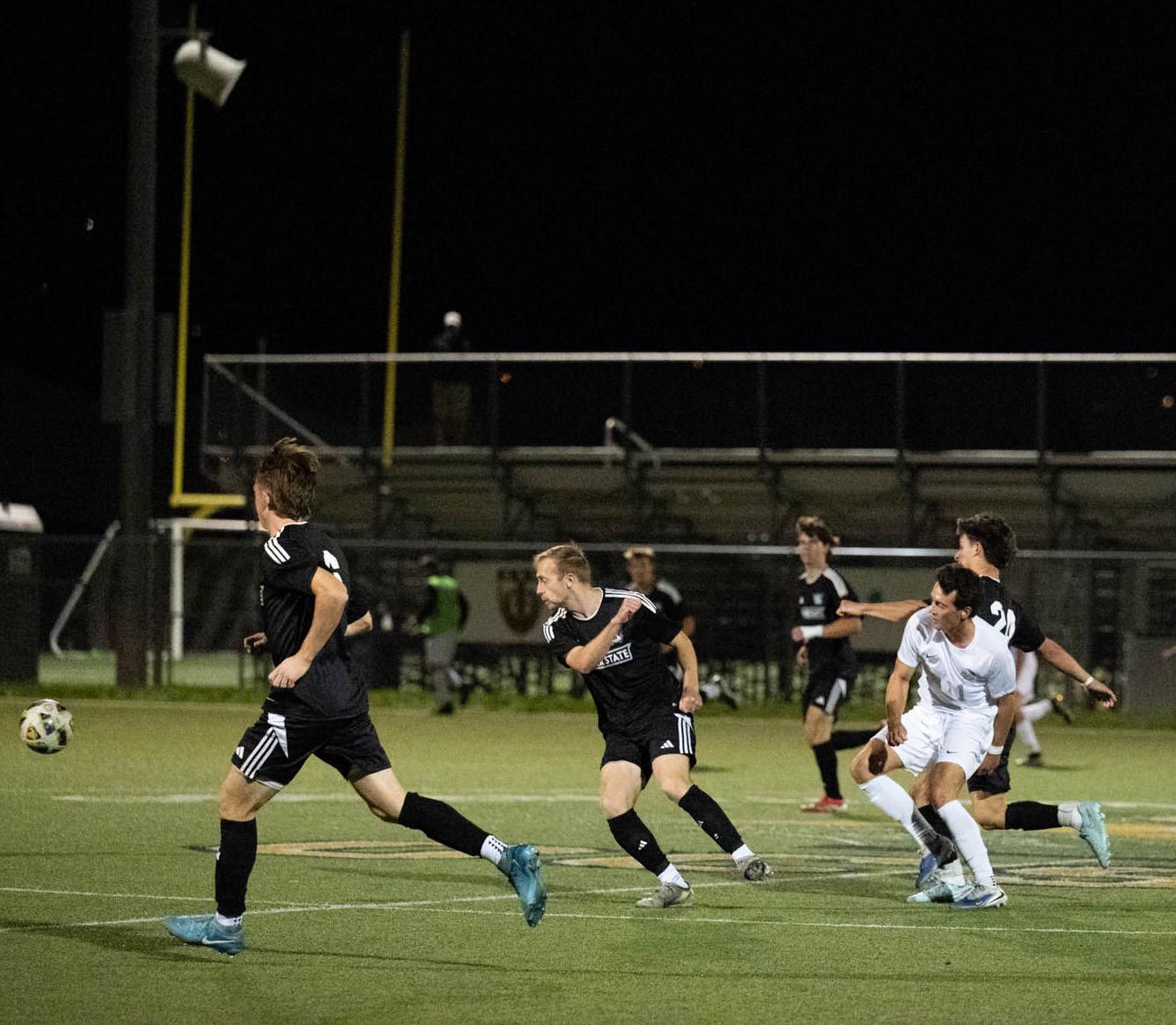
Arriba: Conner Williams corrects hacia la pelota de fútbol.
Abajo: Tomas Paraizo se prepara para patear la pelota

By WILL NAUGHTON Reporter
The men’s soccer club at Weber State UniveThe men’s soccer club at Weber State University remained undefeated and put on a show at home, toppling Utah State University 4–1 on Sept. 24 with many club legends watching in what was the club’s alumni night.
Wednesday was a night of celebration, family, friends and free food at Spence Eccles Ogden Community Sports Complex. Weber recognized former players and coaches for their influence and contributions to the program’s historic success while partnering with Gear Up for Good to donate athletic gear internationally. The Aggies could not spoil Wildcat festivities, and the home supporters left with something to smile about.
Tim Crompton, now the athletic director at Weber State, is proud to see the fruits of his labor flourishing all these years later.
“It gave me some purpose in giving back,” Crompton said. “We created a lot of pride in the institution itself, and I certainly feel like that’s stayed with me.”
In a scoreless first half, the match’s temperament was set with tackles and hostile retaliation flying in from both sides. The Wildcats thought they had found the opener when midfielder Corbin Bodily headed into
the net with 20 minutes played. After deliberation amongst the referees, the lineswoman raised her flag for offside and cancelled the goal.
The deadlock was broken in the second half when Weber midfielder Paraskevas Bolos found forward Ben Gladwell wide of the Utah State defensive line with a sweeping pass. Gladwell controlled the ball at full speed before rattling it off the underside of the crossbar and into the goal to bring the score to 1–0 from outside the box.
Minutes later, Bolos doubled Weber’s advantage. The midfielder moved up the pitch into an advanced position and found himself in the right place at the right time. The ball bounced into the Aggie penalty box through a swarm of players, and Bolos slid in to fire his first-time shot past the Utah State goalkeeper.
USU got their consolation goal when forward Manav Soorma applied pressure on Wildcat goalkeeper Chance Izatt and poked the loose ball into the net for 2–1.
Gladwell grabbed his second of the evening through an unaided effort down the middle of the pitch. He picked up the ball roughly 40 yards from the Utah State goal and closed in on the dribble. Despite several Aggie defenders tracking back to stop him, Gladwell kept his balance and slotted the ball into the bottom corner for Weber’s third
goal.
Wildcat defender Jonathan McKinney put the result beyond doubt with a solo effort of his own for 4–1. After Utah State’s defensive clearance saw the ball fall to McKinney’s feet, he darted up the wing and slithered past two Aggie defenders before firing home past the near-post from the right side of the box.
Bolos had his say from midfield in the match and proved influential in attack and defense.
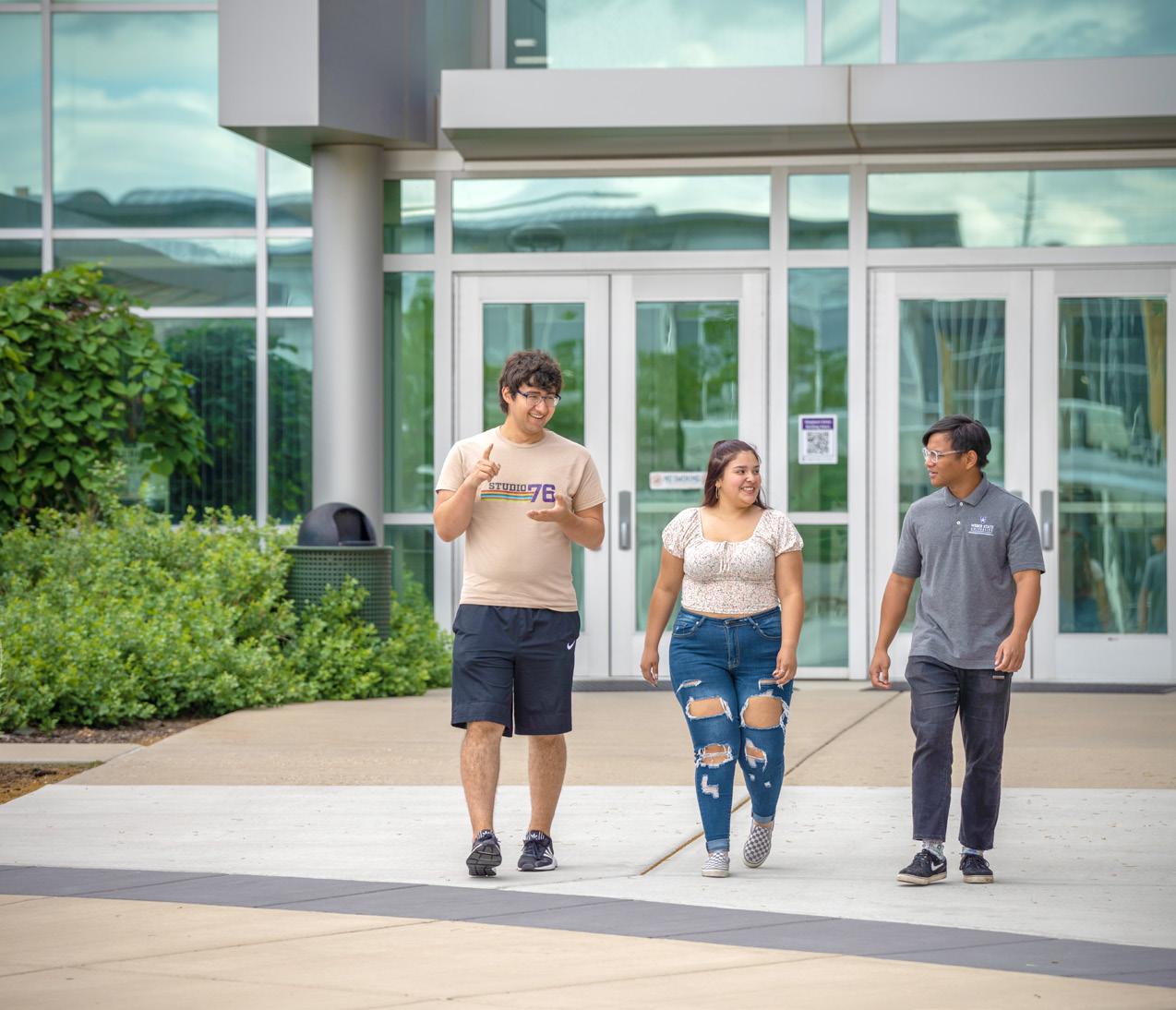
“Good win for the boys, hard fought and dirty,” Bolos said. “It was physical through the first half. I think the 0–0 score definitely led to that, but we’ve just got to keep our heads. In the end, it’s whoever keeps their heads the most, and that was us.”
Weber State Coach Mike Genta was pleased with the result, and its implications with the novelty of the occasion.
“It feels amazing. We knew that … this would probably be the toughest match we’ve had going into the season thus far,” Genta said. “We came out and set the tone of how we were going to play and match them physically. We didn’t back down, and they’ve got a big back line.”
Weber State University’s men’s soccer team prays before the game starts.


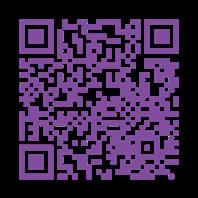

Por LUNA MALAGON SOLORZANO Traductor
Por GRAYSON FREESTONE Reportero
Tras una dura racha en su regreso a Utah, el equipo de volleyball de weber state volvió a su senda ganadora contra la Universidad de el norte de Colorado, un equipo contra el que habían luchado en los últimos años.
Los Wildcats tuvieron su primera victoria contra los Bears desde octubre 7 del 2021. Durante ese tiempo, perdieron contra los Bears en el juego del campeonato Big Sky en el juego del 2021 y en las semifinales del 2024
Los wildcats lograron su nueva victoria de la temporada con un 3-0 contra su rival. Su constancia fue una gran diferencia en-
tre este juego y sus tres anteriores que resultaron en pérdidas.
“Simplemente jugamos de manera consistente”, dijo el entrenador en jefe Jeremiah Larsen. “Eso es lo que hemos estado intentando , solo ser consistentes en cada juego. Jugamos tan bien y tan duro como podamos, y luego pasamos a la siguiente”. Además, las Cats mejoraron su porcentaje de golpes en cada uno de los sets siguientes, hasta alcanzar un 311 % en el partido, con 11 errores.
La atacante exterior Ashley gneiting acredita al equipo la habilidad de ir afuera y jugar con libertad y afirma “ Creo que la estrategia de juego es una gran parte de ello .. nosotras solo queremos aprender y ser mejores y trabajar en las cosas que podamos y jugar con libertad”.
Weber continuará con su calendario de partidos en casa enfrentándose a su otro ri-
val , la Universidad de Idaho, en octubre 3 a las 6pm.
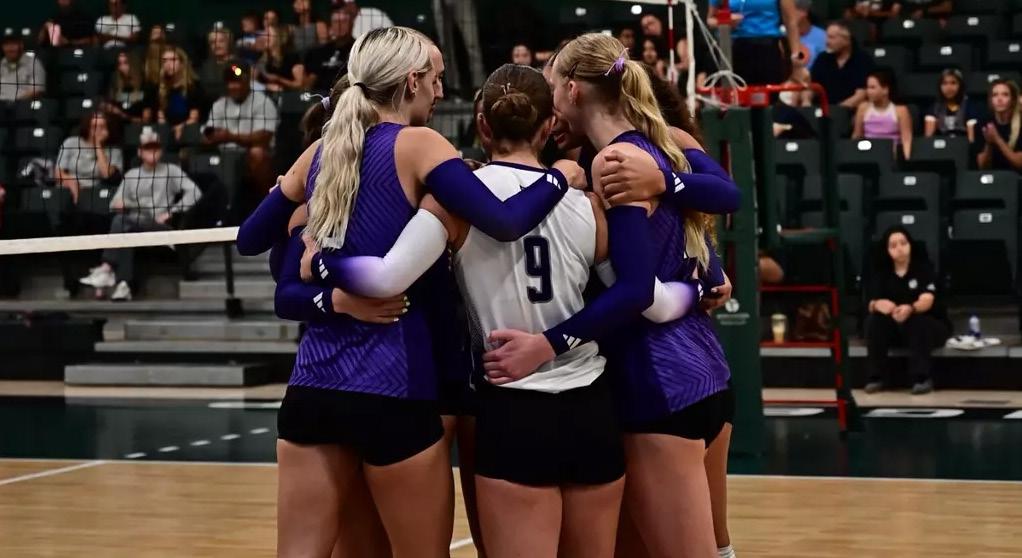
By GRAYSON FREESTONE Reporter
After a tough stretch in their return to Utah, the Weber State University volleyball team got back in the win column against the University of Northern Colorado, a team they had struggled against in recent years.
The Wildcats got their first win over the Bears since Oct. 7, 2021. During that time, they lost to the Bears in the Big Sky championship game in 2021 and the semifinals in 2024.
The Wildcats notched their ninth win of the season with a 3–0 win over their rival.
Their consistency was a big difference between this game and their three prior, which resulted in losses.
“We just played consistent volleyball,” said Head Coach Jeremiah Larsen. “That’s what we’ve been trying to get to, is just being consistent every play. We play as hard and as
well as we can, and then we move on to the next one.”
In addition, the ‘Cats improved their hitting percentage in each of their succeeding sets on their way to hitting .311 on the game, with 11 errors.
Outside hitter Ashley Gneiting credits the team’s ability to go out and play free, saying, “I think game plan is a big part of it … We just want to learn and get better and work on the things we can and play free.”
Weber State will continue their home schedule by playing another rival, Idaho State University, on Oct. 3 at 6 p.m.

Por IVANNA OLACHEA Traductor
Por HAVEN DI
ATENE
Reportero
Golden Retriever
El 16 de septiembre, alrededor de las 2:30 p.m., un oficial de policía de la Universidad de Weber State realizaba una patrulla a pie y se cruzó con un individuo en la Bell Tower Plaza. El individuo tenía un golden retriever que no llevaba correa y según se informa había estado lanzando la pelota al perro. El perro se comportó bien, pero el oficial notó que algunas personas cercanas se miraban incómodas. El oficial se acercó al individuo y tuvo una interacción positiva con
él, pero le recordó que ambos la Universidad de Weber State y el estado de Utah tienen leyes que requieren que los perros deben llevar correa.
Vehiculo Sospechoso
El 18 de septiembre, a las 4:00 a.m., un oficial estaba realizando una patrulla rutinaria en el Dee Events Center cuando se encontraron con un vehículo que estaba estacionado en diagonal en dos espacios de estacionamiento. Debido a lo sospechoso del vehículo, el oficial salió para revisarlo. No había nadie dentro del vehículo, y había sido dejado sin seguro. El oficial verificó que no había sido reportado como robado e intentó encontrar al conductor. Después de que el oficial fue incapaz de localizar al con-
ductor, ellos dejaron la escena y despejaron la llamada.
Accidente de Ascensor
El 18 de septiembre, cerca de las 3:30 p.m., un oficial fue enviado a la Shepherd Union después de que dos personas quedaran atascadas en el ascensor noroeste. Cuando el oficial llegó, ellos intentaron reiniciar el sistema del elevador tres veces sin éxito. Otro oficial, que tenía más conocimiento trabajando con elevadores, llegó a la escena un poco después. Este oficial fue capaz de localizar el problema mecánico del ascensor, y reiniciarlo con una palanca. El primer oficial fue capaz de abrir a la fuerza las puertas y las dos personas dentro fueron capaces de salir sin heridas.
Noorda Building
El 19 de septiembre, a las 12:50 p.m., un individuo reportó que una puerta en el Noorda Technology Building se había roto y no cerraba. Cuando el oficial llegó, ellos notaron que el problema se debía a un defecto mecánico causado por el uso constante de la misma, y no a alguien rompiendo la puerta. El oficial aconsejó al individuo que reportó esto, que ellos deberían contactar a su administrador, quien podría después contactar a gestión de instalaciones acerca de arreglar la puerta.
By HAVEN DI ATENE Reporter
On Sept. 16, at around 2:30 p.m., a Weber State University Police Department officer conducting foot patrol came across an individual at Bell Tower Plaza. The individual had a golden retriever who was off leash and had been reportedly throwing the ball for the dog. The dog was well behaved, but the officer noticed that a few nearby people looked uncomfortable. The officer approached the individual and had a positive interaction with them, but reminded them that both Weber State University and the state of Utah have laws that require dogs to be leashed.
On Sept. 18, at 4 a.m., an officer was conducting a routine patrol at the Dee Events Center when they came across a vehicle that was parked diagonally in two parking spots. Due to the suspiciousness of the vehicle, the officer got out to check it. There was no one inside the vehicle, and it had been left unlocked. The officer verified that it hadn’t been listed as stolen and attempted to find the driver. After the officer was unable to locate the driver, they left the scene and cleared the call.
On Sept. 18, at about 3:30 p.m., an officer was dispatched to Shepherd Union after two
people got stuck in the northwest elevator. When the officer arrived, they tried to reset the power to the elevator three times with no success. Another officer, who had more knowledge working with elevators, arrived on scene shortly after. This officer was able to locate the mechanical problem with the elevator, and reset it with a crowbar. The first officer was able to pry open the doors and the two people inside were able to leave with no injuries.
On Sept. 19, at 12:50 p.m., an individual reported that a door in the Noorda Technology Building had become broken and wouldn’t close. When the officer arrived, they
noticed that the problem had come from a mechanical defect through constant use of it, and not someone breaking the door. The officer advised the individual who reported this, that they should contact their administrator, who could then contact Facilities Management about fixing the door.
Por IVANNA OLACHEA Traductor
Por AISHA RUCKER Reportero
Tengo una relación complicada con la Autoridad de Tránsito de Utah. Aunque estoy agradecida de tener otro medio de transporte, no pude evitar notar el deterioro del servicio al cliente a lo largo de los años. Cuando empecé a usarlo, principalmente utilicé la ruta de autobús 612 como mi medio de transporte para ir y volver del colegio. Es mejor tomar una caminata de 20 minutos en lugar de manejar 3 minutos. Estaba empezando a convertirse una rutina normal para mi al punto en el que los conductores de autobuses conocían mi ruta y me llevaban al frente de la puerta de mi casa y tan cerca de la escuela como les fuera posible. Esto me llevó a convertirme en un rostro familiar para los conductores de autobuses, que me esperaban a la hora en que quedamos para dar un paseo.
Sin embargo, mis pensamientos al re-
specto han cambiado desde que perdí mi carro tres años atrás. Estaba de acuerdo con tomar el autobús ya que conocía las rutas para el autobús y el costo, creí que estaba bien, pero estaba equivocada. Los 20 minutos de espera eran demasiado frustrantes, especialmente cuando se trataba de las duras condiciones climáticas. A menudo me encontraba a mi misma escondiéndome en las tiendas cercanas o restaurantes para escapar, pero me llevó a gastar dinero en cosas que no necesito para pasar el rato.
“Su sistema de transporte público es bastante malo. No hay tantos autobuses, así que acabas esperando mucho tiempo por autobuses aquí y allá. Los puntos de transferencia son un fastidio. Solo termina siendo una complicación. Quieres llegar a un lugar que llevaría 10 minutos manejando, pero al final acabas en el autobús por 2 horas, y tomas tres autobuses diferentes,” dijo Sarah Rash, otra pasajera de UTA.
La construcción en curso alrededor de Riverdale solo ha formado más dificultades. Cuando mi caminata normal de 6-7 minutos se torno a una de 15 minutos debido a la reconstrucción del puente en 4400 sur,
sabía que iba a ser mas problematico para mi porque soy floja… no esperaba que llegara al punto donde estaba preocupada por mi bienestar por todos los conductores que están distraídos por sus teléfonos.
La aplicación “Transit” utilizada para ayudar a los clientes a encontrar sus autobuses, y sus rutas ha llevado a las personas a llegar ya sea 30 minutos temprano, 10 minutos tarde o el autobús para esa hora ni siquiera existe, lo que suma a la frustración actual para los pasajeros. Esto es realmente horrible ya que hay muchas personas en mi vecindario que toman el autobús. Dado que la ruta 640 ha sido tan poco fiable con sus paradas, muchas personas se han movido a la ruta 470 la que puede añadir 20 minutos adicionales a los viajes.
Hay muchos autobuses estupendos en esta parte de la ciudad, pero tendría que decir que el autobús de la universidad hace la vida un poco más fácil. Ayuda a bastantes estudiantes universitarios a ir y volver a casa sin ningún problema adicional. “Me gusta la 640. Es muy agradable no tener que hacer transbordos en autobús para llegar a la universidad,” dijo Grace Call, otra estudiante
que depende del autobús.
Muchas personas no están felices con los pocos autobuses que hay durante el año y como el FrontRunner solo tiene un tren cada hora y no funciona los domingos. Bella Bobbermin, otra estudiante que usa el transporte público UTA dijo que ella ha tenido problemas con el horario del FrontRunner al intentar ver a su novio.
El sistema UTA tiene sus beneficios, especialmente cuando se trata de deficiencias sustanciales, pero su servicio es inconsistente, preocupación de seguridad y naturaleza incomoda del transporte público me deja un mal sabor de boca. Es necesario introducir mejoras para mejorar el sistema. Tiene que haber una manera de hacer que el sistema sea más fiable para todos los involucrados.
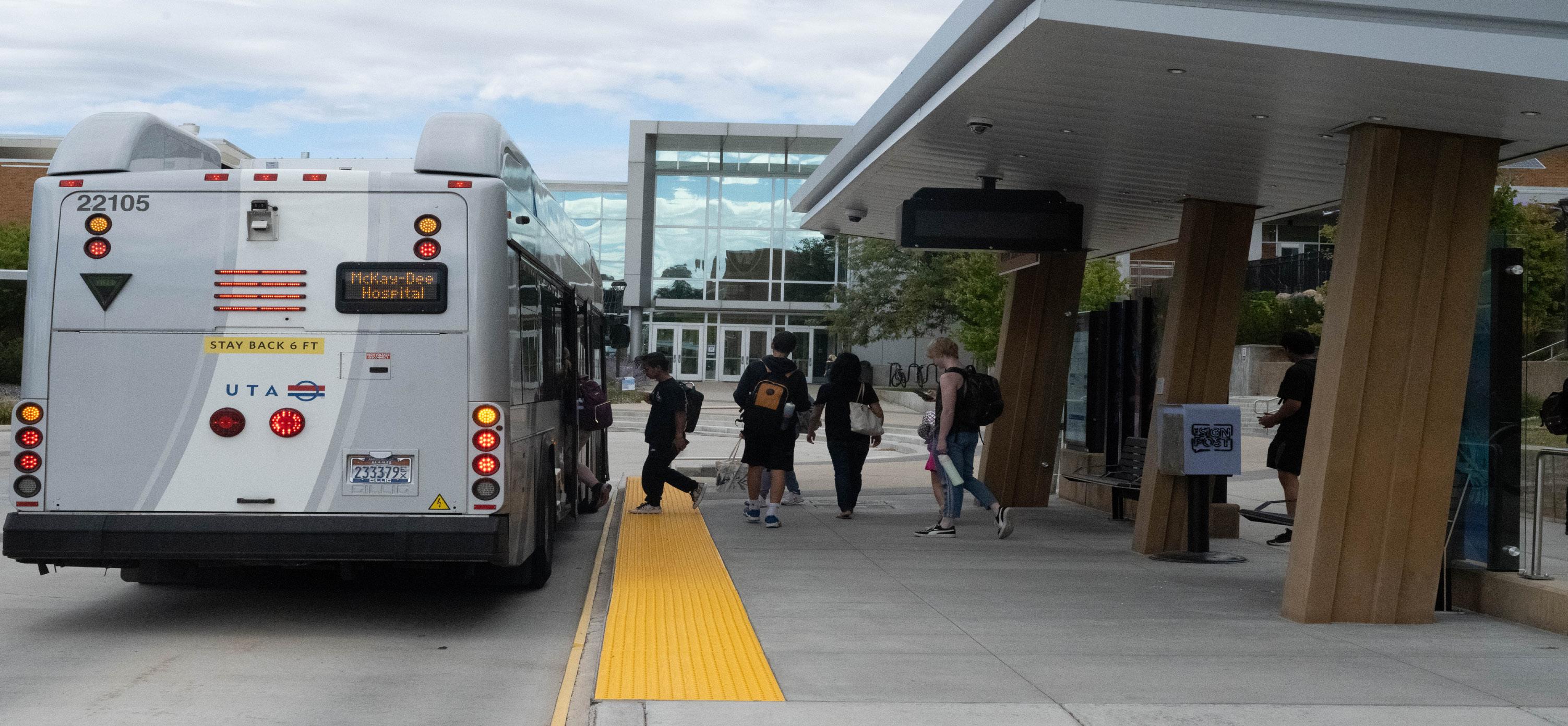
By AISHA RUCKER Reporter
I have a complex relationship with the Utah Transit Authority. While I’m grateful to have another means of transportation, I couldn’t help but notice its decline in customer service over the years.
When I first started using it, I mainly used the 612 bus route as my way of getting to and from school. It beats taking a 20-minute walk for a 3-minute drive. It started to become a normal routine for me to the point that the bus drivers knew my route and would just take me to the front door of my home and as close to my school as possible. This led me to become a familiar face with the bus drivers, waiting for me at the time I met them for a ride.
However, my thoughts about it have changed since I lost my car three years ago. I was okay with taking the bus since I knew the routes for the bus and the cost, I believed it to be okay, but I was wrong. The 20-minute wait times for it were so frustrating, especially when it came to the harsh weather conditions. I often found myself ducking into nearby stores or restaurants to escape, but it led me to spend money on things I don’t need to pass the time.
Editor-in-Chief
Nelly Hernandez Tejada nhernandeztejada@mail.weber.edu
Managing Editor
James Gordon jamesgordon@mail.weber.edu
Collaboration Editor Bryce Odenthal bryceodenthal@mail.weber.edu
Design & Graphics Editor
Izabelle Cordeiro icorderio@mail.weber.edu
Photography Co-Editor Anna Kuglar briannakuglar@mail.weber.edu
Photography Co-Editor
A.J. Handley andrewhandley@mail.weber.edu
“Their public transportation system is kinda crappy. There aren’t that many buses, so you end up waiting a long amount of time for buses here and there. Transfer points are a pain. It just ends up being a complication. You want to get somewhere that would take you 10 minutes to drive, but it ends up with you being on the bus for 2 hours, and you took three different buses,” Sarah Rash, another UTA bus rider, said.
The ongoing construction around Riverdale has only added to more difficulties. When my normal 6-7 minute walk turned into 15 minutes due to the rebuilding of the bridge on 4400 South, I knew it was going to be more of a problem for me since I was lazy.. I did not expect it to get to the point where I’m concerned for my well-being because all the drivers that are distracted by their phones.
The “Transit” app used to help customers find buses, and their routes have led people to arrive either 30 minutes early, 10 minutes late or the bus for that time doesn’t even exist, adding to the ongoing frustration for passengers. This really sucks since there are a lot of people in my neighborhood who take the bus. Since the 640 route has been so unreliable with their stops, a lot of people have moved to the 470 route which can add an
News Editor Alfonso Rubio alfonsorubio@mail.weber.edu
Sports Editor Gavin Nelson gavinnelson1@mail.weber.edu
Asst. Sports Editor Brayson Brown braysonbrown@mail.weber.edu
Culture Editor Jared Mitchell jaredmitchell@mail.weber.edu
Chief Copy Editor Mindy Brown mindybrown1@mail.weber.edu
Translation & Asst. Chief Copy Editor Tomas Quintero Uribe tquinterouribe@mail.weber.edu
additional 20 minutes to trips.
There are many great buses on this side of town, but I would have to say that the university bus makes life a little easier. It helps many college students get to and from home without any additional problems. “I do like the 640. It is very nice that I don’t have to do bus transfers to get to college,” said Grace Call, another student who relies on the bus.
A lot of people are not happy with how few buses there are for the year and how the FrontRunner only has one train every hour and does not run on Sundays. Bella Bobber-
min, another student who uses UTA public transportation said that she has run into issues with the FrontRunner schedule when trying to see her boyfriend.
The UTA system has its benefits, especially when it comes to substantial shortcomings, but the inconsistent service, safety concerns and uncomfortable nature of public transportation leave a bad taste in my mouth. There needs to be improvements to better the system. There has to be a way to make it a more reliable system for everyone involved.

Translation Co-Editor Victoria Hernandez victoriahernandez1@mail.weber.edu
Translation Co-Editor David Roman Aros davidromanaros@mail.weber.edu
Business Manager Robert Steedley robertsteedley@weber.edu
Adviser
Jean Norman jeannorman@weber.edu
D2 Room 110, WSU Davis Oct. 3
Film screening: "Banned Together" & film discussion with student panel and audience | 6:00 p.m.
Stewart Library, WSU Ogden
Breakfast | 8:30 a.m.
Navigating Censorship panel with faculty, sta and community | 9 a.m.
Breakout sessions | 10:40 a.m. - 1:30 p.m.
Please